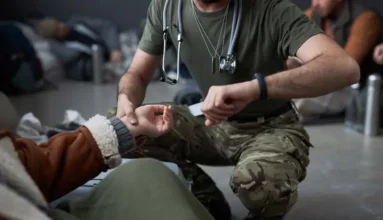Ship Medical Equipment
All Ships Must Carry Medicine Kits and Medical Equipment
The Panama Maritime Authority issued a circular regarding the equipping of ships with medicine kits and medical equipment. It highlights the importance of quick access to medicines for seafarers, especially in emergency situations. Furthermore, the aim of the circular is to enhance crew safety by ensuring that ships comply with international guidelines.
Requirements for Medicines and Equipment
- According to the circular, every ship must carry:
- Medicine kits and medical equipment that comply with the latest edition of the “International Medical Guide for Ships” by the WHO.
- Equipment that corresponds to the size of the crew, the duration, and the nature of the voyage.

Additional Guidelines
- The crew must have immediate access to medicines and medical facilities.
- Onboard medical care must be provided by a specialized officer. If a doctor is present, the range of medicines can be broader.
Access to Medicines and Equipment
Ships must ensure that the crew has access to:
- Medicines and medical equipment for diagnosis and treatment.
- Information on medical care and occupational health.
Medical care must be provided under the captain’s guidance. In serious cases, a doctor’s advice is essential.

Documentation of Medical Supplies
The list of medicines must include:
- Expiration dates for each medicine.
- Proper storage conditions.
- Quantities used or remaining.
Each ship must maintain an updated record of treatments provided to ensure adequate supplies are available.
Responsibilities of Captains and Crew
The captain is responsible for managing the medical supplies on board. They must ensure proper storage and replacement of expired medicines. However, maintenance tasks may be delegated to trained crew members.
In serious situations, a doctor’s advice is essential. Collaboration between the captain, crew, and doctor is vital.
Storage of Medicines and Equipment
To ensure quality, medicines must be stored:
- In conditions that protect them from moisture and extreme temperatures.
- At room temperature (15–25 °C) or in a refrigerator (2–8 °C) when required.
The refrigerator must be exclusively for medicines and have a lock.
Management of Expired Medicines
Medicines must be checked regularly. Expired medicines must be replaced promptly and disposed of properly. Additionally, ports must be informed about pharmaceutical waste and quantities.

WHO Guidelines and Special Equipment
Each ship must carry the latest edition of the “International Medical Guide for Ships”. For vessels transporting hazardous cargo, the IMDG Code defines additional guidelines and equipment requirements.
Controlled Drugs Register
The captain must maintain a register for controlled drugs. This register must record usage and quantities and cannot be discarded until at least two years after the last entry.
Maintaining the register ensures compliance with regulations and provides transparency in the use of medicines.
Frequently Asked Questions
-
How can crew members be trained to use medical equipment effectively?
Crew members can be trained through specialized seminars that focus on the safe use of medicines and equipment. Additionally, they learn to recognize symptoms and provide first aid under telemedicine guidance or medical manuals. -
What happens if supplies run out during long voyages?
Captains are required to ensure sufficient stock for long voyages. If replacement is urgently needed, resupply can be arranged through ports or specialized services during stops. -
What role does telemedicine play in serious onboard incidents?
Telemedicine allows crew members to communicate directly with doctors ashore, who provide instructions for managing serious cases. High-resolution cameras and diagnostic devices aid in data transfer, facilitating diagnosis and treatment.
Ship Medical Equipment


